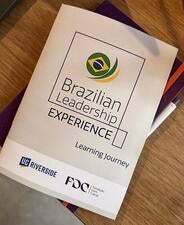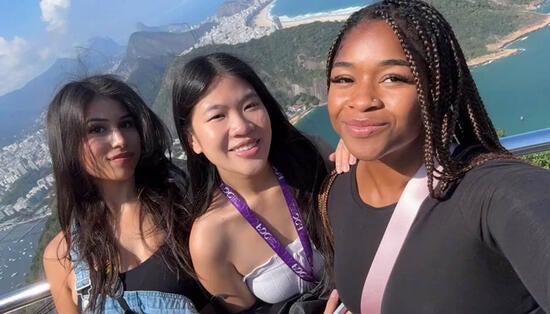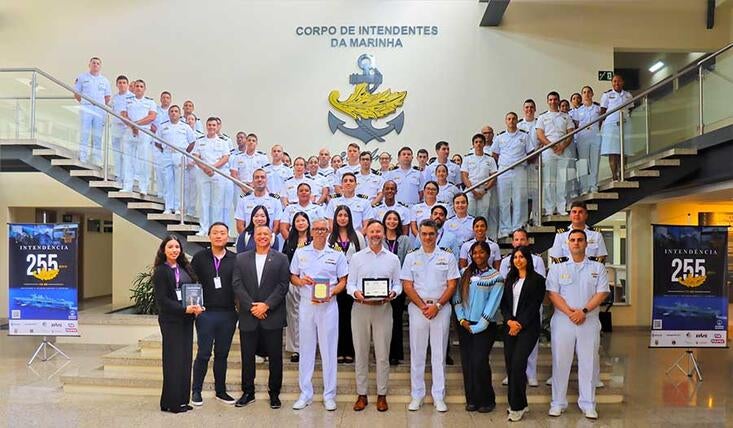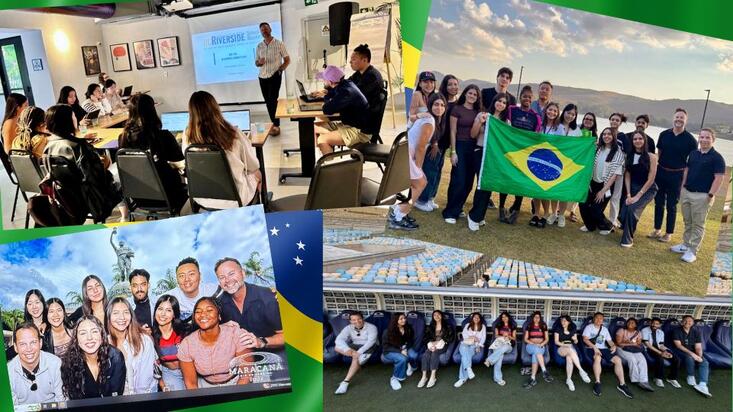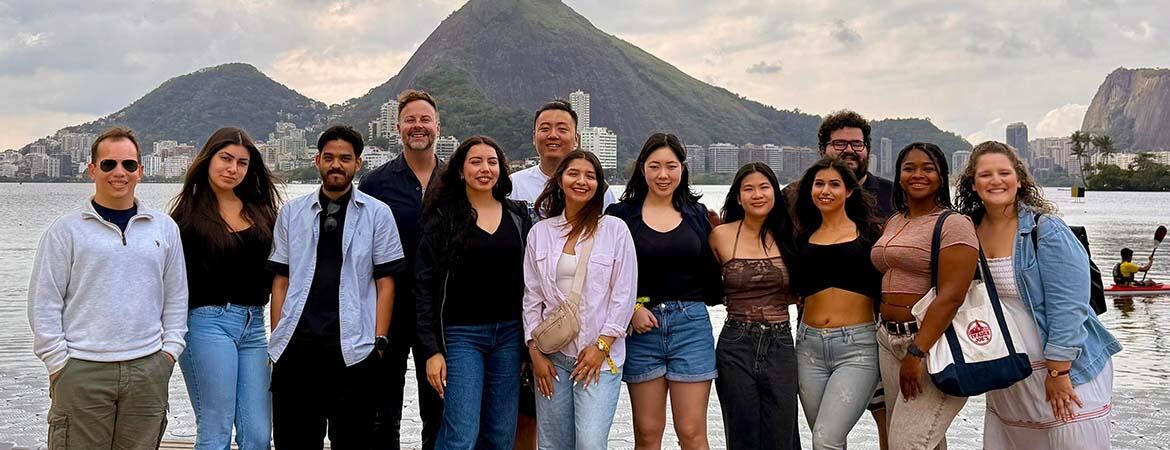
Over the summer, Alikoi Parra ’27 was among the 15 students who traveled to South America with the UCR School of Business Brazilian Leadership Experience.
“As a first-generation student, I’ve always been driven to get the most out of my college experience, and when Management Professor Kyle Ingram announced this program during the fall 2024 quarter, I knew I had to apply,” says Parra.
“I had never traveled outside the country before, and I saw this as a crucial step for my personal growth and future career.”
The three-week trip was led by Ingram as a significant component of UCR’s Faculty Led Education Abroad Programs. This experience was in partnership with Fundação Dom Cabral (FDC), one of the top business schools in the world and ranked No. 7 globally by the Financial Times.
“The program was built around my Designing and Leading Teams course and provided a deep, hands-on exploration of leadership, teamwork, and cultural intelligence with a global context,” says Ingram.
“Students examined how effective teams function across cultures and applied this knowledge through a team consulting project focused on expanding dignified work and income opportunities for favela residents.”
Leadership in Motion
The first half of the program took place in Rio de Janeiro, where students experienced the intersection of leadership, innovation, and culture, according to Ingram: “This portion emphasized leadership adaptability, communication, and the importance of shared purpose within cultural settings.” Students visited the Brazilian Naval Academy where two Brazilian Naval officers and UCR Business MBA alumni greeted them., “A senior officer shared what it means to lead in high-stress, high-stakes situations where decisions can mean the difference between life and death,” says Lanaye Gibson ’27, one of the student travelers.
In the second phase the group was hosted by FDC’s Nova Lim and Aloysio Faria campuses in Belo Horizonte, the capital of Minas Gerais and a hub for entrepreneurship and social innovation. The emphasis in this phase “focused on empathy-driven leadership, sustainability, and the intersection of business and social responsibility,” says Ingram.
The schedule included guest lectures, workshops, team-building activities, cultural encounters, and a final presentation by the students as they pitch their social impact solutions to a panel of judges comprising FDC faculty leaders and local social investors.
‘New Motivation’
“Professor Ingram is the kind of professor who genuinely wants his students to succeed, and he pushed us out of our comfort zones. This approach was vital when our class faced one impactful challenge: a visit to a local favela, where we worked to present ideas for improving the community’s livelihood,” says Parra.
“The vibrant energy of walking down the famous streets of Ipanema and Copacabana left a strong impression, but the classroom lessons were equally powerful. Professor Ingram’s class taught me how to be a better leader using practical tools that I know will help me in the future. The entire experience gave me a new motivation and curiosity about the world.” Gibson echoed that sentiment: “Opportunities like this don’t just allow students to study abroad; they allow us to grow into the leaders we’re meant to become.”
